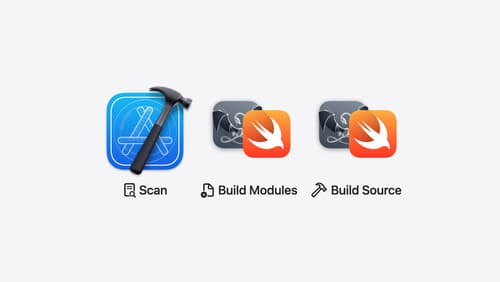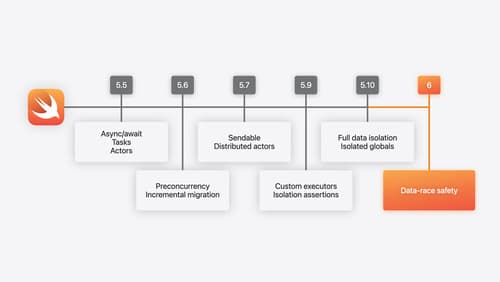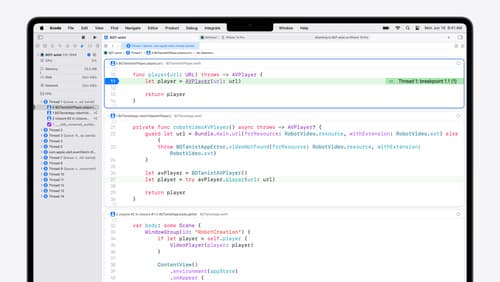Explicit modules
Asked on 2024-07-31
1 search
Explicitly built modules are a new way of handling module builds in Xcode, introduced to improve build reliability and efficiency. Here are the key points about explicitly built modules:
-
Build System Control: Explicitly built modules put the build system in control of module builds. This means that the build logs will now show module compilation times as separate tasks, rather than being included in compile tasks (Demystify explicitly built modules).
-
Build Phases: The process is split into three phases: scanning, building modules, and building the original code. This separation allows for better parallelism and clearer error messages if the build fails due to a module issue (What’s new in Xcode 16).
-
Module Graph: Xcode starts by scanning each source file to build a module graph for the entire project, sharing modules across targets. This graph helps in dispatching module compilation tasks efficiently (Demystify explicitly built modules).
-
Build Log and Timeline: The build log now contains explicit scan tasks, module compile tasks, and the original source file tasks. This makes it easier to see where time is being spent during the build process and helps optimize the build (Demystify explicitly built modules).
-
Efficiency and Reliability: Builds are more reliable with precise dependencies and deterministic build graphs. The build system can make more informed scheduling choices, avoiding tasks that are not ready to run and making efficient use of available execution lanes (Demystify explicitly built modules).
-
Debugger Integration: Explicitly built modules allow the debugger to share binary modules with the build, resulting in faster debugging (What’s new in Swift).
For more detailed information, you can refer to the session Demystify explicitly built modules.

Demystify explicitly built modules
Explore how builds are changing in Xcode 16 with explicitly built modules. Discover how modules are used to build your code, how explicitly built modules improve transparency in compilation tasks, and how you can optimize your build by sharing modules across targets.

What’s new in Swift
Join us for an update on Swift. We’ll briefly go through a history of Swift over the past decade, and show you how the community has grown through workgroups, expanded the package ecosystem, and increased platform support. We’ll introduce you to a new language mode that achieves data-race safety by default, and a language subset that lets you run Swift on highly constrained systems. We’ll also explore some language updates including noncopyable types, typed throws, and improved C++ interoperability.

What’s new in Xcode 16
Discover the latest productivity and performance improvements in Xcode 16. Learn about enhancements to code completion, diagnostics, and Xcode Previews. Find out more about updates in builds and explore improvements in debugging and Instruments.
